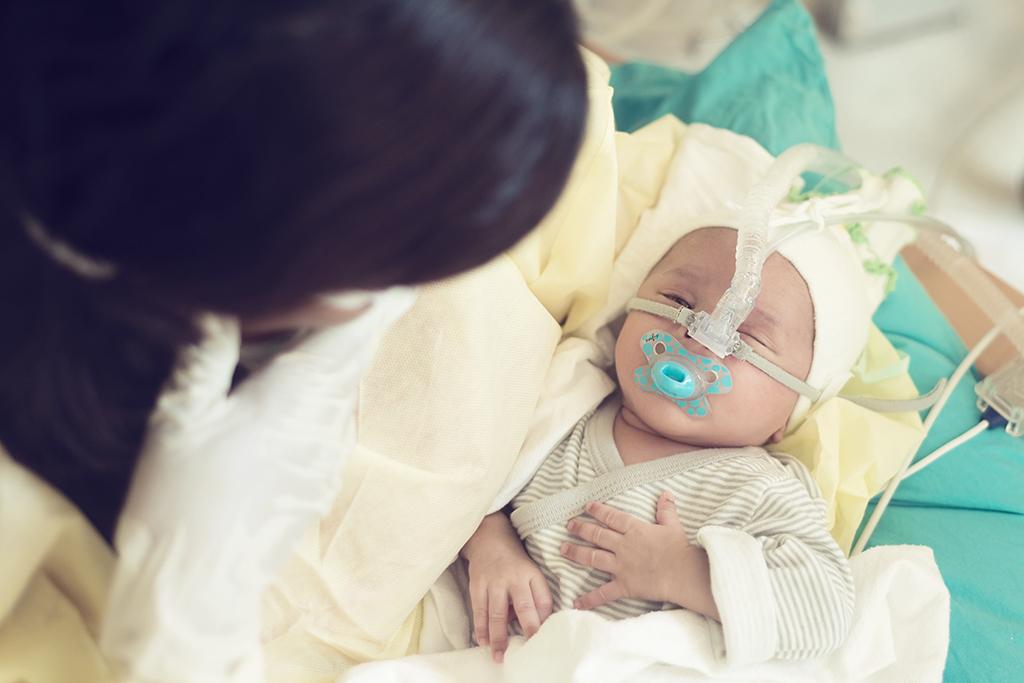A new study of pregnant women before and during the COVID-19 pandemic reveals that few had severe respiratory syncytial virus (RSV) infections during pregnancy, and pregnancy was not a risk factor for severe outcomes, while a second study notes that the highest disease risk is in newborns.
The first study was published yesterday in Open Forum Infectious Diseases. While the risk of RSV has been well-understood for infants and the elderly, the risk to pregnant women has been less studied.
The study was based on all women aged 18 to 49 years hospitalized with laboratory-confirmed RSV from the RSV Hospitalization Surveillance Network (RSV-NET), with outcomes among pregnant and non-pregnant women compared pre-pandemic (2014-2018), and during the pandemic (2021-2023). Twelve states—California, Colorado, Connecticut, Georgia, Maryland, Michigan, Minnesota, New Mexico, New York, Oregon, Tennessee, and Utah—are included in the network.
More asymptomatic RSV during pandemic in pregnant women
Across both periods included in the study, 11,309 adults from the 12 states were hospitalized with RSV infection. Among these, 1,042 (9.2%) were women 18 to 49 years of age, including 387 women during the pre-pandemic period and 655 during the pandemic period. The authors identified 41 (10.6% of women of childbearing age) pregnant women in the pre-pandemic period and 238 (36.7% of women of childbearing age) in the pandemic period.
The increase in pregnant women with RSV during the pandemic was likely due to increased testing. "It is likely that in the pandemic period, healthy pregnant women with asymptomatic or mild RSV were incidentally identified through routine COVID-19 respiratory virus screening with multi-pathogen tests upon admission to the labor and delivery ward," the authors wrote.
It is likely that in the pandemic period, healthy pregnant women with asymptomatic or mild RSV were incidentally identified through routine COVID-19 respiratory virus screening .
Among those hospitalized pre-pandemic and during the pandemic, 33 (80.5%) and 84 (35.3%) were symptomatic pregnant women, respectively, the authors said. The two groups did not differ in median age, race, or ethnicity.
"Our study indicates that asymptomatic RSV infection may be more common among pregnant women than previously thought as demonstrated by the high proportion of asymptomatic pregnant women with RSV identified in the pandemic period when testing increased," the authors concluded. "However, pregnant women are likely not at higher risk for severe RSV outcomes when compared to non-pregnant women of the same age."
Younger, premature infants most at risk for hospitalization
In the second study, published today in Pediatrics, researchers show that younger infants and premature children experienced the highest rates of RSV-associated hospitalization among preschoolers and had an increased risk of intensive care unit (ICU) admission.
The prospective study of children ages 5 years and under looked at kids hospitalized with acute respiratory illness from 2016 to 2020 at seven US pediatric hospitals. A total of 13,524 children were included in the study.
The average annual RSV-associated hospitalization rate was 4.0 (95% confidence interval [CI], 3.8 to 4.1) per 1,000 children age 5 and under. Hospitalization rates were highest among children 0 to 2 months old (23.8 per 1,000 children).
ICU admission was associated with prematurity at birth, with an adjusted odds ratio [aOR] of 1.97 (95% CI, 1.54 to 2.52).
However, 3 out of 5 children who tested positive for RSV during the study period had no history of prematurity or any chronic illnesses. Among RSV-positive infants under the age of 1 year, 75% had no history of prematurity or comorbidities.
"Most children hospitalized with RSV were otherwise healthy, suggesting that universal administration of safe and effective RSV prevention products may significantly reduce morbidity among children in the United States," the authors concluded.



















